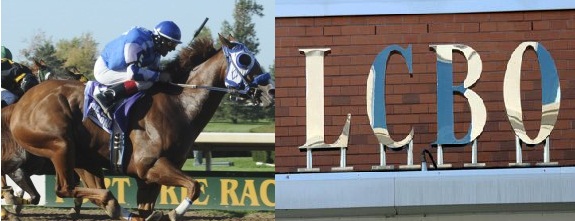
Ontario’s newest actions to eliminate the deficit are critical to job creation and economic growth, says Minister of Finance Dwight Duncan. The Ontario government is moving forward with a responsible plan to eliminate the deficit so that more jobs are created and the economy continues to grow.
Since the introduction of the 2011 Budget, growth in the global economy has slowed. This means additional steps must be taken to slow down the rate of growth of government spending in order to keep the plan to eliminate the deficit on track.
Ontario Finance Minister Dwight Duncan outlined today the next steps in the government’s plan to eliminate the deficit. These steps will give Ontarians better value for money and lead to improved public services.
The LCBO headquarters, currently located on some of the most valuable, under-developed real estate in Canada, will be sold and redeveloped. A retail store will remain in the vicinity while the headquarters will be moved. The LCBO will realize ongoing savings and after the land is sold and a new, modern facility is built, it is expected to generate well over $200 million for taxpayers.
The government will move to greater involvement of the private sector in ServiceOntario through a strengthened public-private partnership. This will deliver better value for money and improve customer service for families.
Since 1998, Ontario taxpayers have been supporting horseracing with a subsidy of up to $345 million a year. The province will evaluate that subsidy given the need to continue to invest in health care and education.
Minister Duncan reiterated that the government is on track to meet its deficit target this year, and said these new measures will help ensure the government stays on track to eliminate the deficit by 2017–2018.
QUOTES
“Eliminating the deficit is essential to continued economic growth and job creation. A strong economy supports the schools and hospitals families rely on. Our plan will eliminate the deficit by 2017–2018.”
— Dwight Duncan, Minister of Finance
QUICK FACTS
The LCBO property currently includes head office space and a large warehouse dating from 1954. It also contains a flagship store, which will be redeveloped nearby.
About two-thirds of ServiceOntario’s in-person service locations are already operated by private sector partners.
With 17 locations, Ontario has more racetracks and provides more public funding than any other place in North America. The cost of the current horseracing subsidy would pay for over 27,800 hip or knee replacement surgeries or provide over 9 million hours of home care.
LEARN MORE
Read about the revitalization of Ontario Place. Read http://www.ontario.ca/en/initiatives/progressreport2011/index.htm
FOR MEDIA INQUIRIES ONLY:
Aly Vitunski, Minister’s Office, 416-325-9819
Scott Blodgett, Ministry of Finance, 416-325-0324
www.ontario.ca/finance-news
*Disponible en français

Leave a Reply
You must be logged in to post a comment.